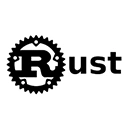Iterators in Rust provide a powerful way to process sequences of elements. They come with a variety of methods that allow you to transform, filter, and collect data efficiently. In this guide, we will explore some of the most common iterator methods and provide examples to illustrate their usage.
1. map
The map method creates a new iterator by applying a function to each element of the original iterator. It transforms the elements based on the provided closure.
Example of Using map
fn main() {
let numbers = vec![1, 2, 3, 4, 5];
// Using map to square each number
let squared: Vec<i32> = numbers.iter()
.map(|&x| x * x)
.collect();
println!("Squared numbers: {:?}", squared);
}
</i32>Explanation of the Example
- In this example, we create a vector named
numberscontaining integers. - We call the
itermethod to create an iterator over the vector. - We use the
mapmethod to square each number, applying the closure|&x| x * x. - The
collectmethod gathers the results into a new vector namedsquared.
2. filter
The filter method creates a new iterator that only includes elements that satisfy a specified condition. It takes a closure that returns a boolean value.
Example of Using filter
fn main() {
let numbers = vec![1, 2, 3, 4, 5, 6];
// Using filter to keep only even numbers
let even_numbers: Vec<i32> = numbers.iter()
.filter(|&&x| x % 2 == 0)
.collect();
println!("Even numbers: {:?}", even_numbers);
}
</i32>Explanation of the Example
- In this example, we create a vector named
numberscontaining integers. - We call the
itermethod to create an iterator over the vector. - We use the
filtermethod to keep only the even numbers, applying the closure|&x| x % 2 == 0. - The
collectmethod gathers the filtered results into a new vector namedeven_numbers.
3. fold
The fold method allows you to accumulate values from an iterator into a single result. It takes an initial value and a closure that combines the accumulator with each element.
Example of Using fold
fn main() {
let numbers = vec![1, 2, 3, 4, 5];
// Using fold to calculate the sum of the numbers
let sum: i32 = numbers.iter()
.fold(0, |acc, &x| acc + x);
println!("Sum of numbers: {}", sum);
}
Explanation of the Example
- In this example, we create a vector named
numberscontaining integers. - We call the
itermethod to create an iterator over the vector. - We use the
foldmethod to calculate the sum of the numbers, starting with an initial value of0. - The closure
|acc, &x| acc + xadds each element to the accumulator.
4. collect
The collect method transforms an iterator into a collection, such as a vector, hash map, or other data structures. It is often used at the end of an iterator chain to gather results.
Example of Using collect
fn main() {
let numbers = vec![1, 2, 3, 4, 5];
// Using collect to create a vector of strings
let string_numbers: Vec<string> = numbers.iter()
.map(|&x| x.to_string())
.collect();
println!("String numbers: {:?}", string_numbers);
}
</string>Explanation of the Example
- In this example, we create a vector named
numberscontaining integers. - We call the
itermethod to create an iterator over the vector. - We use the
mapmethod to convert each number to a string usingx.to_string(). - The
collectmethod gathers the results into a new vector of strings namedstring_numbers.
5. Conclusion
Rust's iterator methods provide a flexible and efficient way to process collections. By using methods like map, filter, fold, and collect, you can perform complex data transformations with ease. Understanding these methods will help you write more idiomatic and efficient Rust code.

